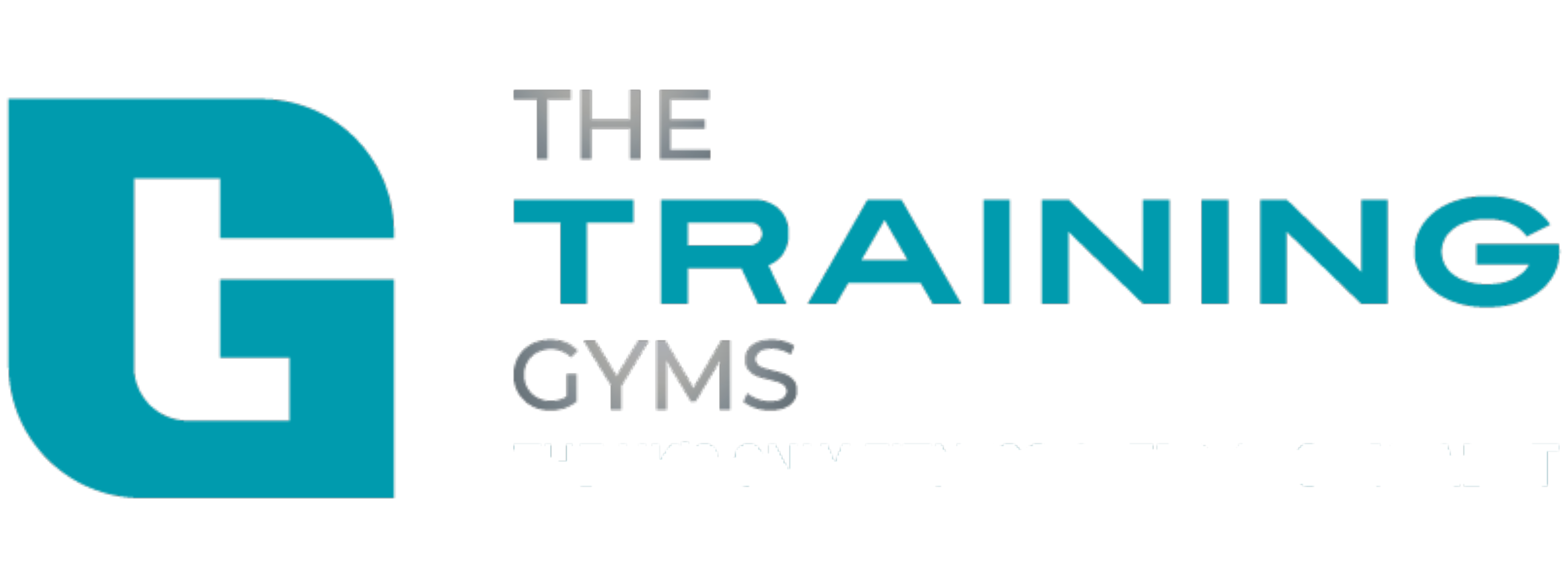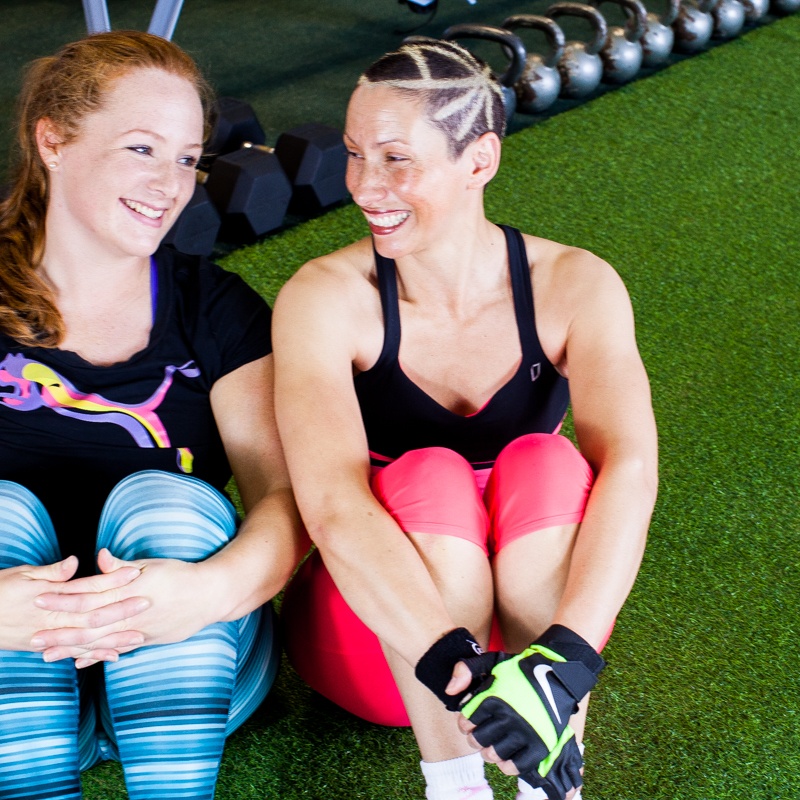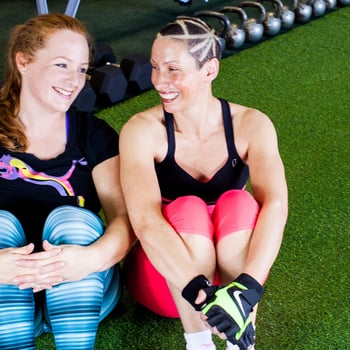 Christina: This is Christina with the DVCC and today I’m joined with Greg, trainer at the DVCC’s Bedford location. We’re going to discuss the importance of recovery in your workout.
Christina: This is Christina with the DVCC and today I’m joined with Greg, trainer at the DVCC’s Bedford location. We’re going to discuss the importance of recovery in your workout.
Greg, we’re here today to talk about the importance of recovery.
Before we get into recovery though, can you briefly discuss the stages of a workout, from start to finish?
Greg: Yes, sure. This could be quite a broad thing and vary quite a lot, but at the DVCC the way it works is a client will come in and do a quick warmup, maybe ten to fifteen minutes, and then the main body of the exercise would be a resistance style interval based, training programme which will last half an hour, and then after this they will do ten or fifteen minutes on a rowing machine, doing intervals again. So the whole thing takes about an hour.
Christina: And in that hour, is the recovery included or does that come afterwards?
Greg: The recovery would be based around the other 23 hours of the day.
Christina: Ok. So we’re talking about a long term recovery?
Greg: Yes, from session to session, not necessarily with a session. You could do specific recovery sessions but it wouldn’t necessarily be classed as a training session.
Christina: Why is recovery so important?
Greg: Quite a few reasons: one is that you don’t want to always be continuously sore, so ensuring proper recovery methods are in place will decrease how sore you are feeling. If you train really hard, at some point you are going to feel really sore regardless, but you can minimise it.
Also, as a result of the first one, if you are always sore you’re probably less likely to want to train again or as often, so that’s where you’re going to hinder your results from the training. So those two together are quite important in the fact that you can train more often.
And lastly you also want to avoid injury, so if you do train too much and you don’t recover in between, there’s a much higher chance you will become injured and then you won’t be able to train for quite a while.
Christina: Does the same apply for people who exercise regularly? Do they still need to be concerned with their recovery?
Greg: Yes, sure. The only difference would be they might not need as long to recover. So if you’re completely starting from fresh and you do one session, you might need a couple of days to get over it before you train again.
Whereas once you’ve been training for a fair while you could gradually build up how much training you do; some people will train twice a day, six days a week and just have one day off. You can build it up over time, but to start off it’s going to maybe take a little bit longer than somebody who has been training for a year or so.
Christina: What’s a good way to recover, immediately after a workout? Are there some stretching exercises?
Greg: There are a lot of things you can do. I would say some are necessary, some others are less so, so optional, they’re not as important. The essential ones would be having proper nutrition in place, so you want a high protein intake every day; protein is what’s going to help repair and grow the muscle tissues.
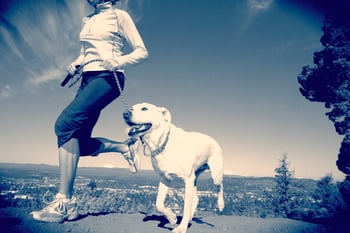 Secondly, I would also suggest you do some form of active recovery; this could be just walking, it could be swimming - anything light, just to get the blood flowing around the body; that can help a lot.
Secondly, I would also suggest you do some form of active recovery; this could be just walking, it could be swimming - anything light, just to get the blood flowing around the body; that can help a lot.
Third, and I would probably say the most important one, is sleep. You want to get a good amount of unbroken sleep a night, probably between six and nine hours. During a deep sleep you produce the most growth hormone – the growth hormone is the hormone in the body that is going to help repair muscle tissue and help burn fat as well.
So they’re probably the three most essential ones. There are a few others you could use, like massage, ice bath, contrast showers; but they tend to be more used by people who are high level sports performers.
Christina: What about nutrition and the things that we eat, can that help us to recover as well?
Greg: The nutrition definitely can; there are a few things you want to make sure you have in place, one of those being a high quality protein intake. As I just mentioned, this is essential for the repair and growth of muscle tissue.
Also, the other one is having some carbohydrates in place so when you train, your glycogen stores or the store of carbohydrate in your muscle can deplete and you want to get that filled back up straight after, so eating some carbohydrates is going to help that. You also want to make sure you have a good amount of healthy fats in there, as these are what properly regulate your hormones – you want all the hormones, such as testosterone and growth hormones, to be working as they should.
Christina: You mentioned carbohydrates and fats, that’s not something we usually hear when talking about nutrition!
Greg: I think both have had bad press for different reasons, but both are needed, both have negative points as well so you just have to know how to manage both of them properly.
Christina: So in the right proportions?
Greg: Yes, it’s going to be different for everyone, depending on their goal as well.
Christina: What happens if you don’t recover properly after a workout?
Greg: It depends if it’s short term or long term. If you’re looking at just one or two sessions, you’ll experience what we call DOMS (delayed onset muscle soreness); this is the sore feeling that you get after exercise, which isn’t necessarily much of a problem and it should go away after a couple of days.
If you’re looking at longer term, maybe for a week, then you could be feeling overall just pretty sore and beaten up, quite tired. Normally in that case you’d have a couple of days off, which should help you come back from that.
The problem really comes if you go longer than that; so if you were to ‘overtrain’ for a few months, then you would have to have quite a long time off training to properly recover, your hormones will be out of balance and you’ll just feel generally terrible and it will be very difficult to eat well also.
Christina: So you’re saying that if you’re overtraining for a long period of time, you could create an injury for yourself or it actually affects your hormones?
Greg: Yes, you could, sure. Injury is always a risk, but if you overtrain for a period of time you’re going to be more likely to be injured, yes.
Christina: Recovery, as well, plays a role in our sleeping, you mentioned earlier. If we fail to recover properly, how can it affect our mood or sleep?
Greg: It can affect things if you don’t recover properly, so in terms of your mood, what I mentioned earlier about feeling tired from sessions, then obviously you’re not going to be in the best of moods all day if you’re tired or if you’re run down.
Sleep, as well, can be negatively affected; so if you are overtraining for a period of time, then you’ll get an elevated cortisol level which is the body’s stress hormone, which may prevent you sleeping; this will then prevent you from recovering as well, so it’s a downward spiral. And I guess they both link into how you might feel during the day, so if you’re tired then it’s going to be pretty difficult to even think about eating well or training hard.
Christina: So what’s a good meal to eat after your workout?
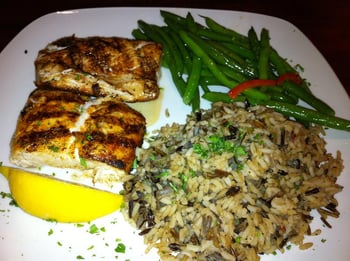 Greg: The post workout meal is very important, so there are two things you want to make sure are in there: one is a high amount of protein and the other is a healthy carbohydrate. The protein source could be anything like fish, chicken, beef, that kind of thing. And carbohydrates, you’re looking at sweet potato, quinoa or brown rice. You can have some fats in there as well but it wouldn’t be quite as important in a post workout meal. So they are what you need to get in there.
Greg: The post workout meal is very important, so there are two things you want to make sure are in there: one is a high amount of protein and the other is a healthy carbohydrate. The protein source could be anything like fish, chicken, beef, that kind of thing. And carbohydrates, you’re looking at sweet potato, quinoa or brown rice. You can have some fats in there as well but it wouldn’t be quite as important in a post workout meal. So they are what you need to get in there.
Christina: And how about supplements? I imagine quite a few people think they don’t need those if they’re eating healthily. What do you think - are they important?
Greg: Supplements are important; it’s more important that you make sure you have a good sleep and nutrition plan in place; once that’s in place then yes, you can definitely look at supplements.
Supplements are as they sound, they are supplementary, so once everything else is in place there are a few that you could look at taking.
One would be fish oil; the fish oil will help with reducing inflammation, so could potentially reduce some DOMS.
Magnesium will help you with sleep, so if sleep is something you’re struggling with, then that could help reduce your cortisol levels, which will help you to sleep better.
And then lastly, protein; we’ve already mentioned having a high protein diet so protein will just help you get more in the diet. They are all supplementary, but they play a good role.
Christina: So to sum up then: a good recovery is vital because…
Greg: Because you want to be able to train regularly for a long period of time, that’s how you’re going to best make results; so consistency over a long time. It’s going to be very difficult to do that if you’re always feeling run down, feeling very sore or getting injured from not recovering properly.
Christina: Anything else to add?
Greg: Just to say that recovery is as important a part of the whole process as training or nutrition.
It could be easy when you first start, when you’re feeling fresh and you haven’t got much training under your belt, to think that maybe it’s not important, but in the long term it’s going to catch up with you eventually.
Christina: So it’s important not to cut corners when it comes to working out?
Greg: Yes, you want to do everything properly from the word go, to get the best results in the end.
Christina: Ok, excellent, thank you very much Greg.
Greg: It’s a pleasure.
Christina: The DVCC has centres in Bedford, Milton Keynes, Northampton, Hitchin and very shortly St. Albans and Central Bedfordshire. So if you’ve been listening to this interview and you’d like to find out more about how the DVCC can help you, then please book an appointment for a DVCC 60 minute discovery call, at www.theDVCC.com/signup.
